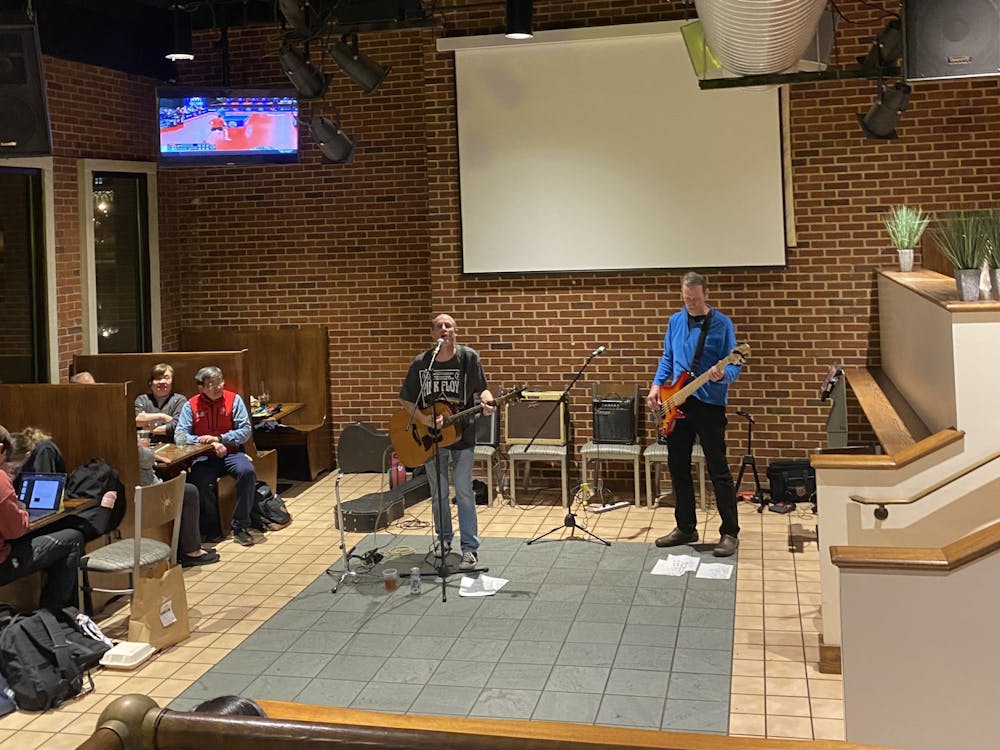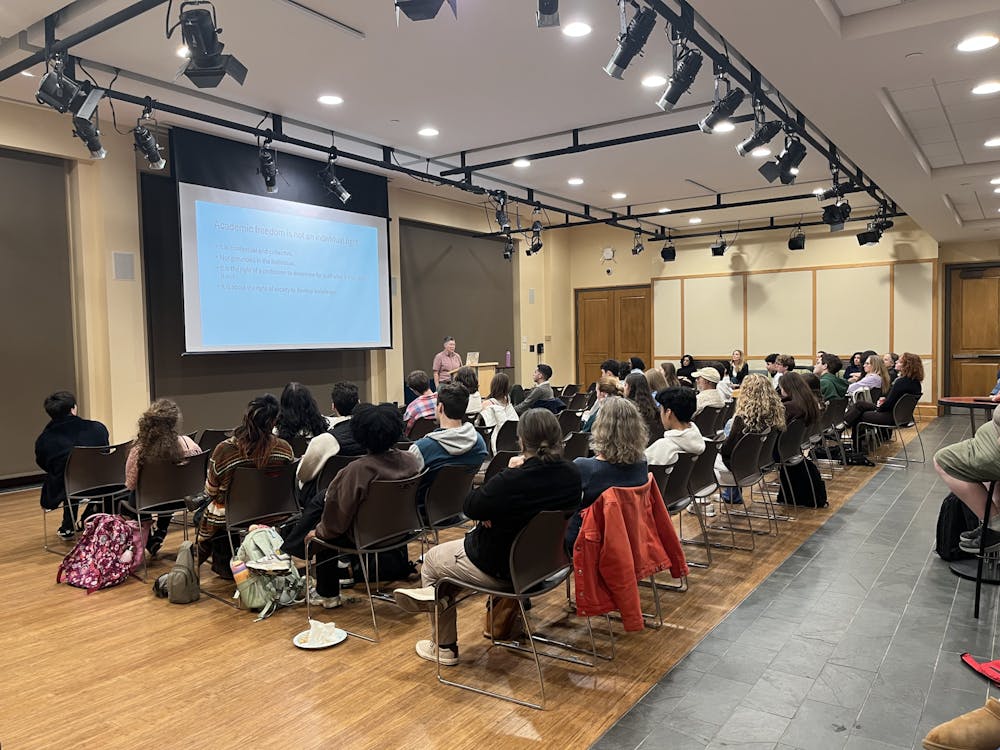Editor's Note: This article contains a depiction of violence that might make some readers uncomfortable. The views and opinions expressed in this article do not reflect those of The Collegian.
On Sept. 10, Charlie Kirk was assassinated in one of the most grisly acts of political violence in recent memory, and the response from talking heads has been far too myopic to properly understand Kirk and his legacy.
What made Kirk’s assassination all the more harrowing was the spread of the event on social media. No matter what platform you found yourself on, you were almost destined to see either a video of Kirk being shot after uttering, “Counting or not counting gang violence?” or of the Utah Valley University crowd fleeing as he fell to the ground.
The moment felt almost impossibly surreal. I vividly remember seeing the clip of Kirk being shot and watching blood stream from his neck as his hands curled up and his body fell back in his chair.
It is a deeply disturbing image and a particularly gruesome manifestation of the gun violence that has become inexcusably commonplace in today’s society. If nothing else, I hope Kirk’s assassination is a wake-up call for gun regulation and an illustration of the dangers of Second Amendment absolutism.
Out of the chaos of the event, one key takeaway has emerged, which is that we owe it to ourselves not to forget who Charlie Kirk was and what he stood for.
Yes, Charlie Kirk was a father, a husband and friend, but he was also a Trump myrmidon and a right-wing demagogue. His politics were profoundly regressive and reactionary. After the dust has settled, we can begin to understand Kirk’s legacy and the media’s treatment of his death in our more dispassionate moments.
Kirk said some of the most odious things possible. During his appearance on the YouTube channel Jubilee, Kirk answered in the affirmative when asked a hypothetical question about whether he would force his daughter to bring a baby conceived during rape to term.
On his own channel and in his numerous debates across college campuses, Kirk has expressed distrust of Black pilots, implored women to submit to their husbands, stated that children should watch public executions to deter them from committing crimes and compared abortion to the Holocaust.
Kirk’s project did not revolve around well-reasoned, measured debate. Rather, he dedicated his life’s work to sowing anger and division in impressionable young minds with incendiary rhetoric that has fueled the fire of knee-jerk, own-the-libs-style conservatism.
Regarding the media’s treatment of Kirk’s assassination, I can’t help but feel that Kirk is what political philosopher Noam Chomsky deemed a “worthy victim” in his 1988 work Manufacturing Consent. By worthy victim, I mean that the media deemed Kirk worthy of extensive coverage.
The uproarious response to Kirk’s death dwarfs the media response to the murders of the two Democratic lawmakers earlier this year, as well as those killed by state-sponsored terror in Gaza. Kirk’s online notoriety and the sheer online spectacle of his death certainly have a role in this response, but the media needs to be held to a higher standard when it comes to adequately acknowledging victims of political and gun violence everywhere.
Enjoy what you're reading?
Signup for our newsletter
Kirk’s memorial was the apogee of the media spectacle. The event, held in State Farm Stadium on September 21, was as if a megachurch service and a political rally had a particularly garish baby. Plenty of pyrotechnics, performances from modern worship groups, and speeches from pastors, Trump loyalists and the president himself made the memorial more of an ideological stunt than a solemn time of mourning.
Erika Kirk, Kirk’s wife, embodied the pretense of the event. As she delivered her speech, grief broke through her heavily powdered visage, forcing her to wipe her tears with a tissue held in her bejeweled right hand. Held in such close proximity, genuine emotion and artifice became almost indistinguishable.
Throughout the entire four-and-a-half-hour service, the Turning Point USA logo shone out from behind the stage, a constant reminder of what Kirk left behind. The absurd spectacle of the event was something Orwell could have only dreamt of.
As pastors and Republican lawmakers proselytized on stage amid a backdrop of strobe lights and advertisements, they presented those in the stadium and those watching at home with the defining feature of the current administration: farce.
How do we understand Charlie Kirk’s legacy? As a loving father, husband and friend or as a demagogue? Kirk’s death clearly touches on the essential question of the balance between honoring and truthfully representing the dead.
Casting him as one or the other is a false binary. Those on the left who want to remember him as nothing more than a dangerous talking head risk simplifying him to the same degree as those on the right who beg Kirk’s critics to merely have sympathy for him as a human being.
First of all, Charlie Kirk was a human being, and no human being deserves to die as he did; this fact is unquestionable. Second, I disagreed with virtually everything he said and found him a particularly dangerous political figure in our highly charged social media landscape. However, that does not mean I — or anyone else — am entitled to rejoice at his death. These two things can be true at once, and I hope Kirk’s death forces us to approach him and his legacy with nuance.
Contact contributor Sam Harbst at sam.harbst@richmond.edu
Support independent student media
You can make a tax-deductible donation by clicking the button below, which takes you to our secure PayPal account. The page is set up to receive contributions in whatever amount you designate. We look forward to using the money we raise to further our mission of providing honest and accurate information to students, faculty, staff, alumni and others in the general public.
Donate Now



